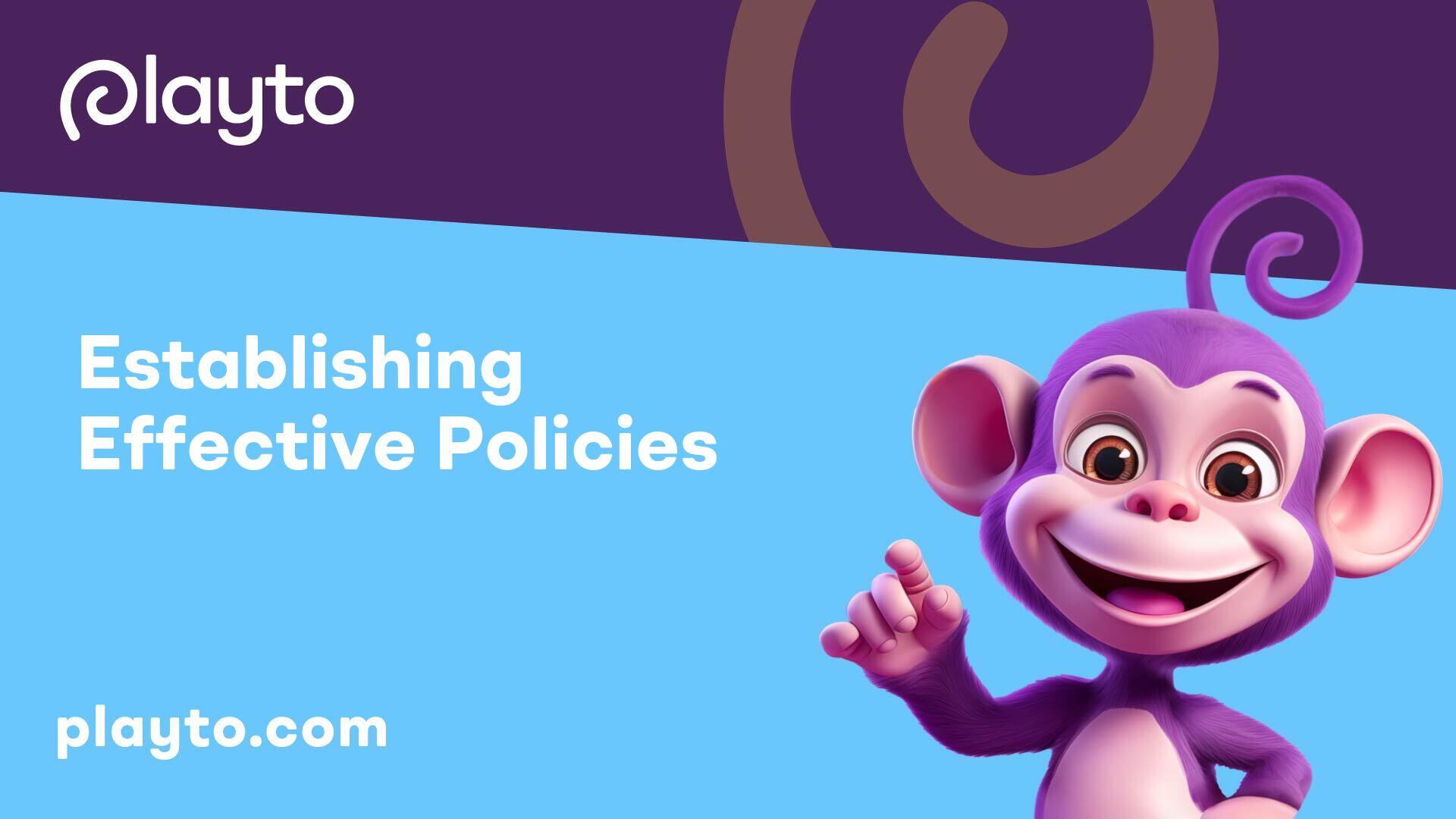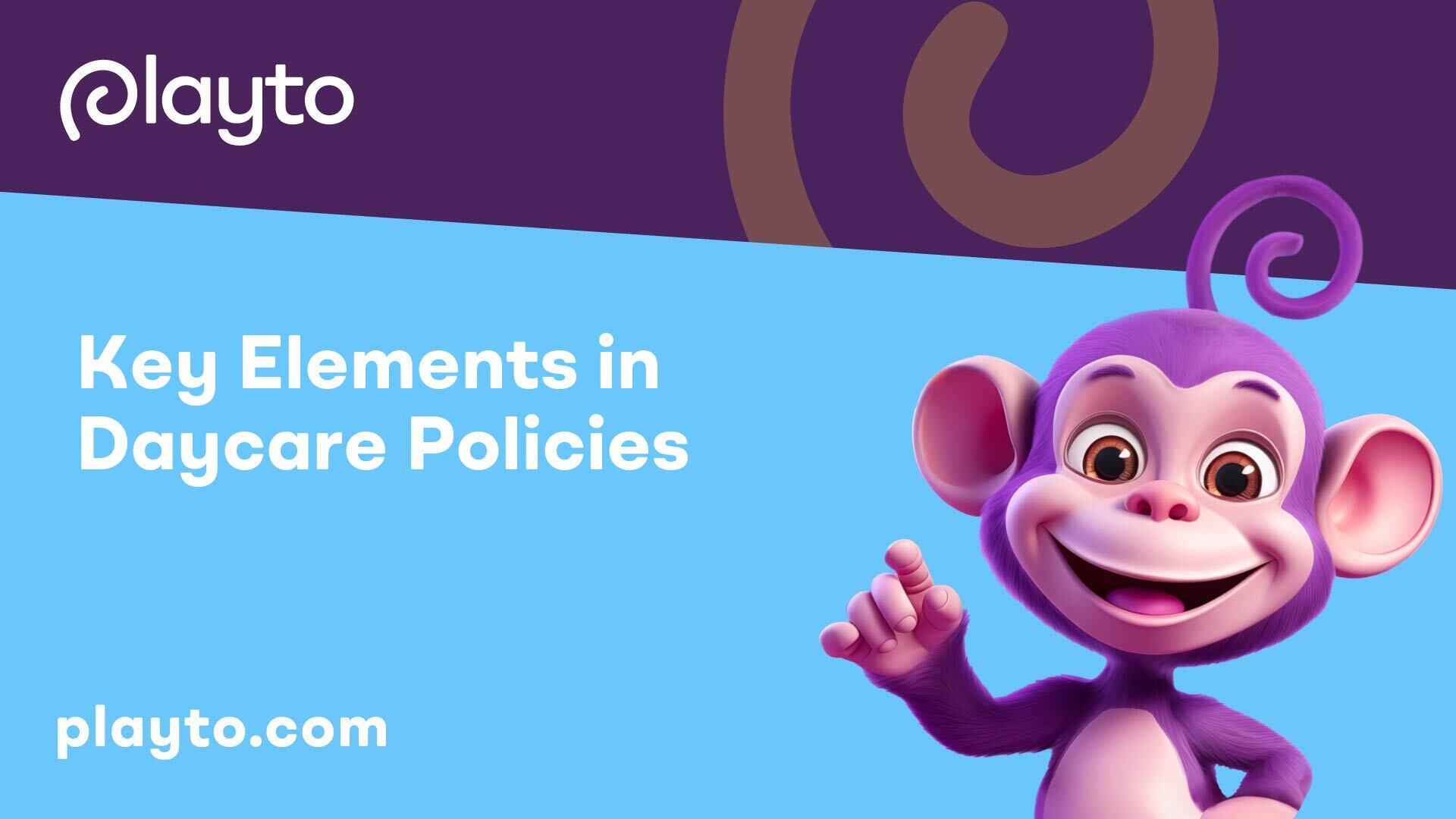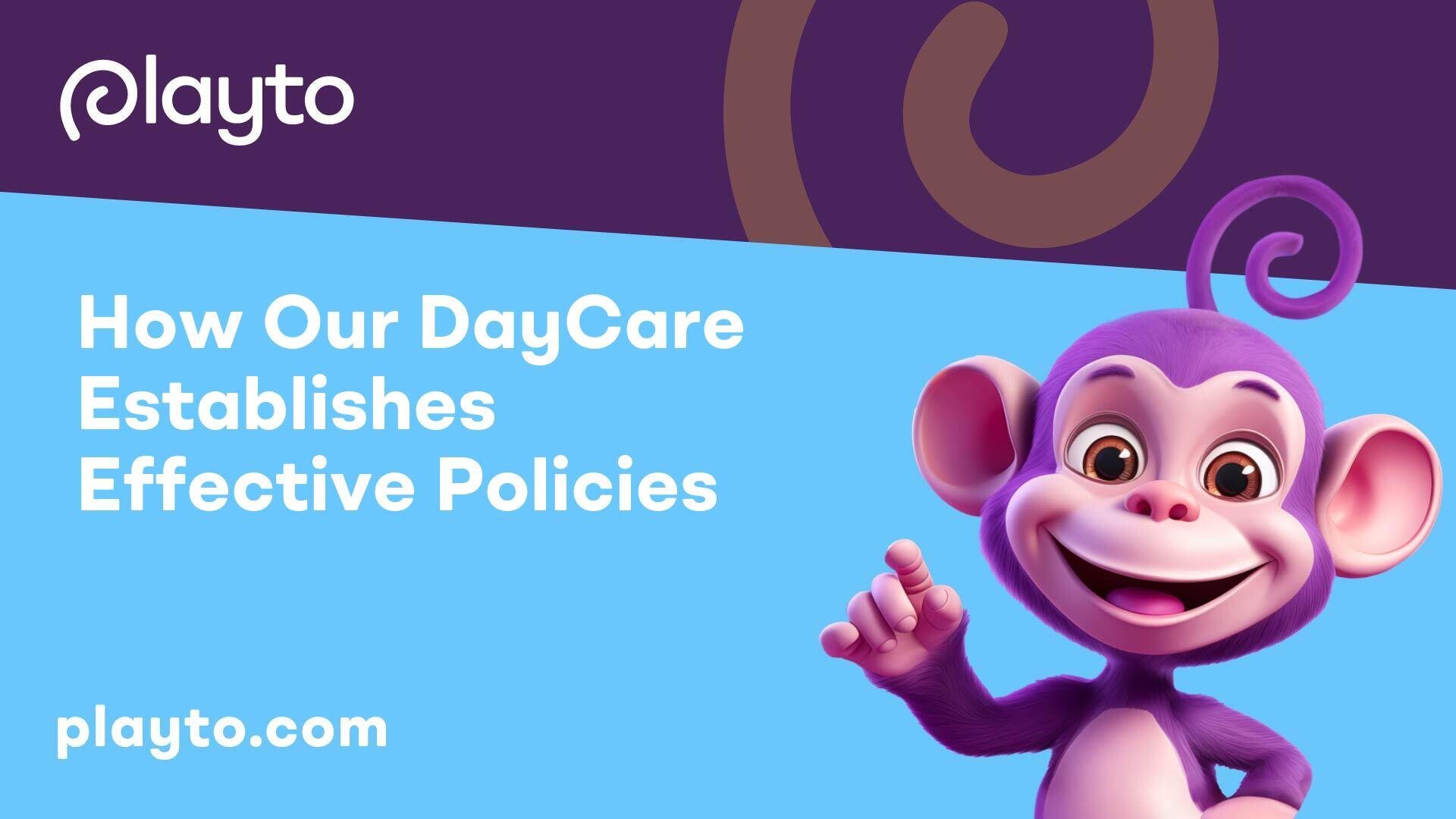
Establishing Effective Policies
Importance of Regular Review
Regular review of policies is crucial in maintaining transparency, compliance, and effectiveness within a daycare setting. It ensures that policies stay current, relevant, and aligned with the evolving needs and regulations of the childcare industry. Understanding the significance of continuous review is essential for how our daycare establishes and upholds efficient policies.
Legal Requirements for Privacy Policies
Privacy laws mandate that any entity with a public-facing website, app, or platform must have a Privacy Policy. Failing to have a Privacy Policy in place can lead to legal violations and penalties [1]. Therefore, ensuring compliance with privacy regulations is vital for daycare establishments to protect the privacy and rights of children and parents.

Characteristics of Effective Policies
In the realm of daycare policies, establishing effective guidelines is essential for maintaining a safe and organized childcare environment. Understanding the components of standard policies and the various types of daycare policies is crucial for ensuring the well-being of children under care.
Components of Standard Policies
Effective daycare policies are typically formally documented and encompass various key components to provide clear and concise guidelines for childcare providers and parents. The standard components of daycare policies often include:
These components collectively create a comprehensive framework that guides decision-making and behavior within the daycare setting, fostering a safe and nurturing environment for children.
Types of Daycare Policies
Daycare policies can encompass a wide range of areas to address various aspects of childcare operations and parent-provider relationships. Some common types of daycare policies include:
These policies play a crucial role in setting expectations, promoting transparency, and fostering positive relationships between childcare providers, parents, and children. By understanding the components and types of daycare policies, daycare centers can establish a harmonious and structured environment conducive to the well-being and development of the children under their care.

Key Elements in Daycare Policies
Effectively establishing and implementing daycare policies is crucial to providing a safe and structured environment for children. Key elements within daycare policies include detailed information on operations and hours, inclement weather procedures, and medication administration protocols.
Operations and Hours Information
An essential component of daycare policies is providing comprehensive information on the days and hours of operation of the childcare center. This information is crucial for parents to understand when the daycare is open and available to care for their children. By clearly outlining the operating hours and any exceptions, parents can plan accordingly and ensure a smooth drop-off and pickup process.
Inclement Weather Procedures
Inclement weather can present challenges for daycare centers, making it imperative to have well-defined policies in place. These procedures should specify how the center determines closures due to severe weather conditions and the communication methods used to notify parents. By establishing clear guidelines for inclement weather situations, daycare centers can prioritize the safety and well-being of both children and staff.
Medication Administration Protocols
Another critical aspect of daycare policies is the establishment of protocols for administering medication to children. These protocols should detail the types of medication that can be administered, parental requirements for providing medication, and the documentation needed from a healthcare provider. By having clear and standardized procedures in place, daycare centers can ensure that medications are administered safely and in compliance with relevant regulations.
For more insights on daycare policies and best practices, explore our articles on understanding daycare enrollment policies and key daycare policies every parent should know. It's important for daycare centers to prioritize these key elements in their policies to foster a secure and nurturing environment for children in their care.
Ensuring Safety Through Policies
Safety within a daycare setting is paramount, and effective policies play a crucial role in maintaining a secure environment for children and staff. Two key aspects that contribute to ensuring safety through policies are emergency response plans and documentation and record-keeping.
Emergency Response Plans
Clearly defined emergency response plans are vital components of effective daycare policies. These plans outline procedures for various emergency scenarios, such as severe weather events, loss of utilities, or threatening situations. By having well-established emergency protocols in place, daycare staff can act swiftly and decisively to protect the safety and well-being of all individuals in the facility.
In the event of an emergency, having a structured response plan helps to minimize confusion and ensures that everyone knows their roles and responsibilities. Regular training and drills should be conducted to familiarize staff with emergency procedures and ensure a coordinated response when faced with unexpected situations. It is essential to involve all stakeholders in the development and review of these plans to address any potential gaps and enhance overall preparedness.
Documentation and Record-Keeping
Documenting policies and procedures is a fundamental aspect of maintaining a safe and compliant daycare environment. It is crucial to establish all policies in writing, continually refine them over time, and involve input from various levels of the organization. Regularly updating the employee handbook with the latest policies and procedures is essential to prevent it from becoming outdated [3].
Accurate and detailed record-keeping is essential for tracking compliance with daycare policies and regulations. Documenting incidents, accidents, and emergency drills allows daycare administrators to assess the effectiveness of existing procedures and make necessary adjustments to enhance safety measures. Furthermore, maintaining up-to-date records ensures transparency and accountability, providing a comprehensive overview of the daycare's adherence to established policies.
By prioritizing emergency response planning and diligent documentation practices, daycares can create a safe and secure environment that instills confidence in parents and promotes the well-being of children and staff members. Regular reviews and updates to these policies are imperative to address evolving challenges and maintain the highest standards of safety within the daycare setting.
Industry Best Practices
When it comes to establishing effective policies within a daycare setting, adhering to industry best practices is essential to ensure operational efficiency and regulatory compliance. This section focuses on the significance of regular updates and revisions in policies and the importance of the employee handbook.
Regular Updates and Revisions
Policies and procedures in a daycare setting serve as the foundation for ensuring the safety and well-being of children and staff. It is crucial to view policies as living documents that require periodic review and adaptation to keep pace with the evolving needs of the organization and changes in the industry landscape [4]. Regularly updating policies is essential to address any loopholes, enhance operational efficiency, and align with the latest legal requirements to maintain compliance.
By establishing a systematic process for reviewing and revising policies, daycares can ensure that their practices remain current and effective. It is imperative to engage stakeholders across various levels of the organization in the review process to gather valuable feedback and insights. Utilizing software solutions for policy management can streamline the updating and revision process, enhancing efficiency and maintaining compliance with regulatory standards.
Employee Handbook Importance
An integral component of daycare policies is the employee handbook, which serves as a comprehensive guide for staff members on operational procedures, guidelines, and expectations. The handbook outlines essential information such as employment policies, code of conduct, safety protocols, and disciplinary procedures.
Regularly updating the employee handbook is crucial to prevent it from becoming outdated and to ensure that employees have access to current information and guidelines [3]. As the daycare environment evolves, new policies may be implemented, existing ones may be revised, or legal requirements may change. Keeping the employee handbook up-to-date not only supports compliance efforts but also promotes transparency and consistency in the enforcement of policies across the organization.
By recognizing the importance of regular updates and revisions in policies and the role of the employee handbook, daycares can establish a culture of continuous improvement and compliance, fostering a safe and nurturing environment for children and staff alike.
Strategies for Compliance
Effective policy implementation in a daycare setting requires a focus on strategies to ensure compliance among staff members. Consistent application of policies and ongoing training and education are essential components in fostering a culture of adherence to established guidelines.
Consistent Application of Policies
Consistency in enforcing daycare policies is crucial to ensure that all staff members follow the same set of rules and procedures. According to Genesis HR Solutions, equal adherence to rules by all employees is key in gaining buy-in from the entire team. Deviations from established policies can erode the importance of these policies, leading to confusion and inefficiencies.
To promote consistent application of policies, daycare administrators should make sure that policies and procedures are easily accessible to all staff members. Providing structured guidelines and checklists can help reinforce the importance of following set policies. Implementing regular audits or reviews to monitor compliance and address any deviations promptly can also help maintain a culture of consistency.
Training and Education
Continuous training and education play a vital role in enhancing compliance with daycare policies. Regular training sessions ensure that employees are familiar with the expectations outlined in the policies and understand the reasoning behind them. Training should cover not only the content of the policies but also the consequences of non-compliance.
By investing in ongoing education, daycare facilities can empower their staff to navigate complex policy requirements effectively. Training should be tailored to each policy's specifics, ensuring that employees comprehend and apply the guidelines correctly [3].
Moreover, as regulations and laws are subject to change, it is essential for daycare facilities to stay current with the latest developments. Regular review of compliance procedures, updating processes based on new laws, and implementing necessary policy changes are critical aspects of maintaining compliance. By incorporating interactive methods such as quizzes or practice runs, organizations can gauge employee understanding and ensure that policies are effectively communicated and adhered to.
By prioritizing consistent policy application and providing continuous training and education opportunities, daycare facilities can establish a culture of compliance that upholds the safety and well-being of children under their care.
Involving Stakeholders in Policy Development
Engaging stakeholders in the development of daycare policies is vital to ensure that the policies are comprehensive, effective, and reflective of the needs of all parties involved. This section focuses on two key aspects of stakeholder involvement in policy development: stakeholder mapping and engagement, and monitoring and evaluation of policies.
Stakeholder Mapping and Engagement
To kickstart the process of involving stakeholders in policy development, strategies such as conducting regular town hall meetings, establishing advisory committees with diverse representation, seeking input through surveys and focus groups, and creating transparent communication channels can be implemented. By engaging in collaborative decision-making with stakeholders, daycare providers can ensure that the policies are inclusive and consider the perspectives of all parties involved, including parents, staff, and community members.
Stakeholder mapping involves identifying the various groups and individuals who have a vested interest in the daycare policies. This includes parents, staff members, regulatory bodies, and community partners. By mapping out these stakeholders, daycare administrators can tailor their engagement strategies to effectively involve each group in the policy development process.
Monitoring and Evaluation of Policies
Monitoring and evaluating daycare policies are essential steps in assessing their impact and effectiveness. By working closely with stakeholders to monitor and evaluate the outcomes of the policies, daycare providers can measure progress, identify areas for improvement, and address any emerging challenges promptly.
Regularly evaluating the policies allows daycare administrators to gather feedback from stakeholders on the practicality, relevance, and success of the policies. This feedback can serve as a valuable tool for continuous improvement and refinement of the policies to better meet the needs of the daycare community.
As a recognition of the contributions made by stakeholders in the policy development process, it is important to acknowledge and reward their efforts and achievements. This not only fosters a sense of appreciation and motivation among stakeholders but also encourages ongoing engagement and collaboration in future policy development initiatives.
By actively involving stakeholders in the mapping, engagement, monitoring, and evaluation of daycare policies, providers can establish a collaborative and inclusive approach to policy development that prioritizes the welfare and interests of all stakeholders involved in the daycare ecosystem.
Importance of Regular Reviews
Regular reviews play a crucial role in ensuring that daycare policies remain effective and up-to-date. Two key aspects to consider in this process are risk assessment in policy development and the importance of limiting trust in security policies.
Risk Assessment in Policy Development
In order to establish sound daycare policies, conducting a thorough risk assessment is essential. A robust security policy should be underpinned by the findings of a comprehensive risk assessment, which provides decision-makers with a clear understanding of the specific security needs of the daycare facility. This process involves gathering input from potential users and external sources to stay abreast of evolving security practices and arrangements in the industry.
By incorporating insights gained from risk assessments into policy development, daycare providers can tailor their security protocols to address potential vulnerabilities and mitigate risks effectively. This proactive approach helps in safeguarding the well-being of children, staff, and visitors within the daycare environment.
Limiting Trust in Security Policies
Daycare policies are diverse and may fall into different categories such as distributive policies, regulatory policies, constituent policies, and redistributive policies. Each of these policy types serves a specific function in guiding decision-making and shaping practices within the daycare setting.
To ensure the effectiveness and integrity of security policies, it is crucial to maintain a healthy level of skepticism and limit blind trust. By critically evaluating security policies and considering their real-world impacts, daycare administrators can make informed decisions that prioritize safety and compliance. This scrutiny helps prevent potential loopholes and ensures that security policies align with the evolving needs of the daycare facility.
Regularly reviewing and refining security policies based on risk assessments and a cautious approach to trust can enhance the overall security posture of daycare centers, instilling confidence in parents and stakeholders regarding the safety and well-being of children under their care.
References
[2]:
[3]:
[4]:
[5]:
[6]:
